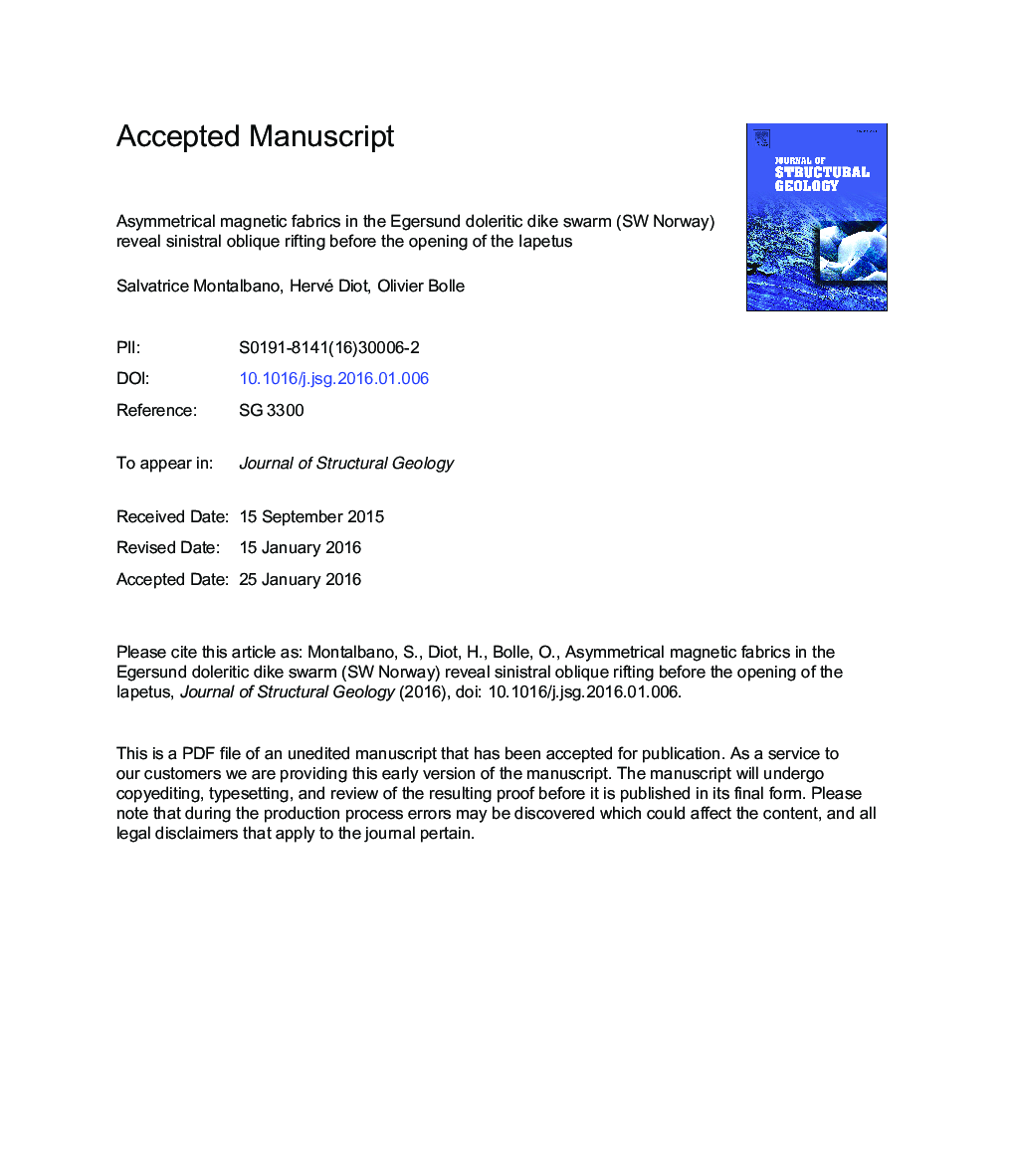| Article ID | Journal | Published Year | Pages | File Type |
|---|---|---|---|---|
| 6444689 | Journal of Structural Geology | 2016 | 62 Pages |
Abstract
The 616 ± 3 Ma (Ediacaran) Egersund doleritic dike swarm cuts across the Rogaland anorthosite province and its granulitic country rocks, in SW Norway. The structure of eight out of eleven main dikes of the swarm was investigated using the anisotropy of magnetic susceptibility (AMS) technique. Thermomagnetic data and values of the bulk magnetic susceptibility reveal a magnetic mineralogy dominated by Ti-poor titanomagnetite. Magnetic fabric and global petrofabric are coaxial, except in sites strongly affected by hydrothermal alteration, as demonstrated through image analysis. Asymmetrical dispositions of the magnetic foliation and lineation support the existence of a syn-emplacement, sinistral strike-slip shearing resolved on dike walls. Such asymmetrical fabrics are attributed to a transtension tectonic regime, in a context of oblique extension during the continental rifting phase which preceded the opening of the Iapetus Ocean along the SW margin (present-day orientation) of Baltica.
Related Topics
Physical Sciences and Engineering
Earth and Planetary Sciences
Geology
Authors
Salvatrice Montalbano, Hervé Diot, Olivier Bolle,
